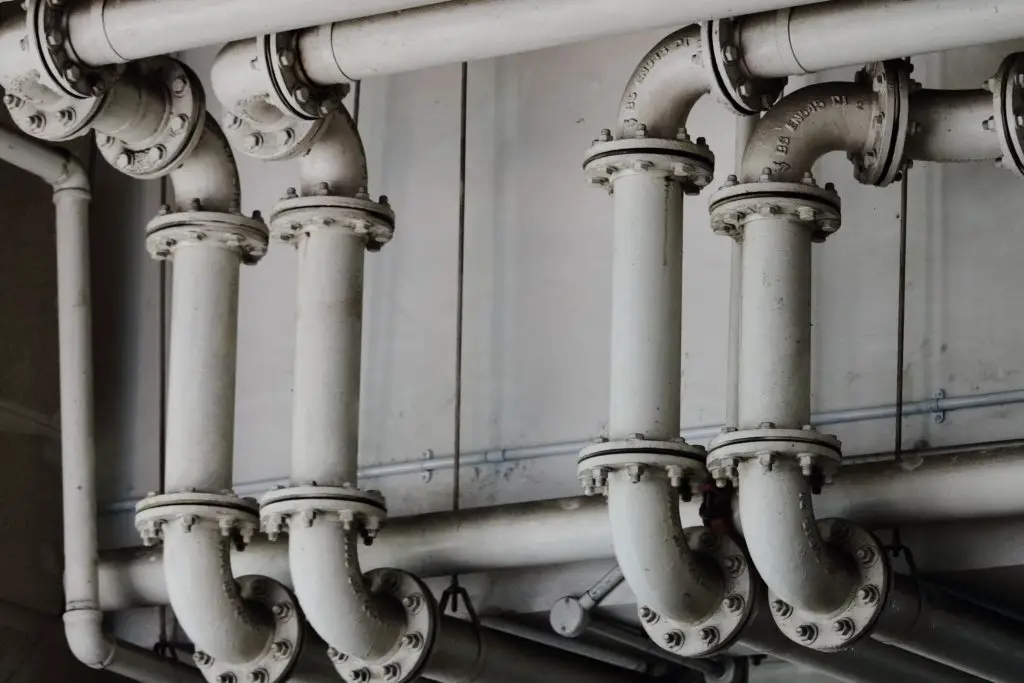
The durability and efficiency of plumbing pipes depends on the type of material used to make them. Pipes made from different materials have varied benefits and lifespans that may influence your choice based on what your plumbing work requires. Knowing their features will help a landlord to logically decide on his plumbing system when it comes to matters of durability and efficiency. The article provides information concerning the service life of a number of common plumbing materials and explains how professional installation, regular maintenance, and water quality can impact service life.
Common Plumbing Piрe Mаteriаls
Coррer Piрes
Copper pipes have been around as long as plumbing itself. They’re incredibly long-lasting; if properly cared for, copper pipes can last from 50 to 70 years. Since they are entirely resistant to corrosion under normal circumstances and can stand the pressure of flowing water, they work perfectly for incoming lines on both cold and hot water supply systems. On the other hand, copper plumbing is time-consuming to install and costly, so if you are going to plan a new pipe installation in San Jose, then you have to think about it.
PVC Pipes
Plastic pipe materials have flooded the market. Among many, PVC pipes are the cheapest and also the easiest to install. They would be used in drainage and sewerage systems, and some are found in water supply systems. As they are resistant to corrosion and chemical damage, they would last up to 50 years or more. However, they cannot be used for hot water pipes because heat distorts them and causes them to degrade. However, its lightweight and ease of handling have made PVC very popular in a wide range of plumbing applications.
Galvanized Steel Pipes
Galvanized steel pipe was a most common type of plumbing pipe before the 1960s. The pipes are actually made of steel with a coating of zinc, which does a good job of preventing rust for a while. While galvanized pipes may work perfectly for 20 to 50 years, they tend to corrode over time, reducing water pressure and eventually clogging the pipes. This can also affect the quality of the water as rust and other minerals build up inside the pipe. These are some of the reasons why most homeowners and emergency plumbers recommend replacing galvanized steel pipes with modern ones.
Cast Iron Pipes
Cast iron pipes are strong and durable, which is why they were used in both domestic and commercial plumbing drain systems. It’s possible to say that pipes can last from 50 to 100 years, taking into account the environment and maintenance conditions. Due to its high strength and resistance to wear, cast iron pipes are very useful in carrying sewage and drainage systems. However, this makes them heavy and cumbersome to install, making them challenging to install and repair. Despite its durability, cast iron pipes can crack or even rust over time, leading to leaks and other plumbing problems.
PEX Pipes
Cross-linked polyethylene pipes are flexible, easy to install and resistant to corrosion and scale. PEX pipes are expected to last at least 40-50 years in continuous service, making them a very reliable material for modern plumbing systems. It can be used for both hot and cold water supply and can be easily maneuvered around corners and objects without the need for too many joints and fittings. PEX has a much higher resistance to freezing temperatures than rigid pipe materials. It prevents the pipe from bursting from its fittings in such climatic conditions.
Professional Installation and Maintenance

While pipe materials play a big role in plumbing reliability, proper installation and regular maintenance are important. Hiring a professional plumber will ensure that the pipes are installed properly and in accordance with the building regulations in your area. A plumber will also be able to advise you on which pipe material is best suited to your location and needs. Fuse Service, an industry leader, specifically cites professional installation and maintenance as key elements in prolonging the life and efficiency of plumbing systems. This means that regular maintenance is the way to go if you want your plumbing system to last longer. In the event of a plumbing emergency, having a trusted emergency plumber on hand can make a significant difference in preventing extensive damage and costly repairs.
Impact of Water Quality
Water quality has a significant effect on the life of pipes. Hard water has a high mineral content, mainly calcium and magnesium, which forms scale inside pipes. This will reduce efficiency over time and ultimately shorten their lifespan. Acidic water will corrode metal pipes such as copper and galvanized steel.
Improving water quality can be achieved by using water softeners or filtration systems. This will reduce the effects and ensure that your plumbing system lasts a long time. However, regular testing of water quality may still be necessary to identify problems and take remedial action in good time.
Conclusion
Plumbing pipes have very different lifespans depending on the type of material used, professional installation, maintenance practices and water quality. There are advantages and disadvantages to copper, PVC, galvanized steel, cast iron and PEX pipes. Homeowners who understand the difference and work with a professional plumber will ensure the efficiency and longevity of their plumbing system. Whether it is a brand new plumbing installation in San Jose or an emergency plumber to deal with urgent problems, using the right materials and carrying out regular maintenance is key to the longevity of the entire system.


